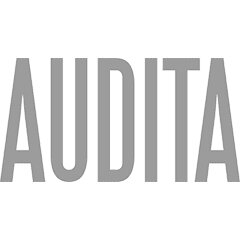Best Tax Lawyers in Vilnius
Share your needs with us, get contacted by law firms.
Free. Takes 2 min.
List of the best lawyers in Vilnius, Republic of Lithuania
About Tax Law in Vilnius, Republic of Lithuania
Tax law in Vilnius, part of the Republic of Lithuania, is a comprehensive system that governs the assessment and collection of taxes within the region. As a member state of the European Union, Lithuania's tax system is influenced by EU directives, but it also implements national policies that reflect its unique economic environment. Taxes in Lithuania include income, corporate, value-added, property, and excise taxes, among others. The Lithuanian State Tax Inspectorate (STI) is the primary authority responsible for administering these tax laws, ensuring compliance, and collecting due payments.
Why You May Need a Lawyer
There are several situations where individuals and businesses may require legal assistance with tax matters in Vilnius:
- Tax Disputes: If there is a disagreement with the STI regarding tax assessments or penalties, a lawyer can advise you and represent your interests.
- Tax Planning: For those seeking to optimize their tax liabilities through legal means, a lawyer skilled in tax law can help plan financial matters efficiently.
- Corporate Tax Issues: Businesses often face complex tax regulations and require advice on corporate structures, transactions, and compliance.
- International Tax Concerns: If you have cross-border financial interests, a lawyer can help you navigate the nuances of international tax laws and treaties.
- Estate Planning: Tax implications are an essential component of effective estate planning for individuals with significant assets.
- Tax Compliance: Ensuring compliance with local laws to avoid penalties and legal issues is as critical for individuals as it is for businesses.
Local Laws Overview
The tax laws in Vilnius, Lithuania, cover several key areas:
- Income Tax: Individuals are subject to a flat tax rate, although specific deductions and exemptions can apply.
- Corporate Tax: The corporate income tax rate is competitive, with provisions for deductions, investment incentives, and losses.
- VAT: Lithuania implements a value-added tax (VAT) system, with different rates applicable depending on the product or service.
- Property Tax: Property owners must comply with local property tax regulations, which consider both property value and location.
- Excise Duties: Specific goods like alcohol, tobacco, and petroleum products are subject to excise taxes.
- Transfer Pricing Regulations: These laws pertain to transactions between associated enterprises to ensure that they are conducted at arm’s length.
Frequently Asked Questions
What is the personal income tax rate in Lithuania?
In Lithuania, the standard personal income tax rate is 20%. However, higher earnings exceeding a set threshold might be subject to an additional rate.
How is corporate tax calculated in Lithuania?
Corporate tax is based on a flat rate of 15%. There can be reduced rates under certain conditions for small businesses and startups.
Are there any tax incentives for businesses in Lithuania?
Yes, Lithuania offers various tax incentives, including for research and development activities, investment in specific sectors, and enterprises operating within designated free economic zones.
What documents are required to file my taxes in Lithuania?
Common documents required include income statements, records of expenses, and any relevant deductions or exemptions. Businesses must provide detailed financial records, including balance sheets and profit/loss statements.
How does VAT work in Lithuania?
The standard VAT rate in Lithuania is 21%, with reduced rates applicable to certain goods and services like pharmaceuticals and books. Some services may also be exempt from VAT.
Can I appeal a tax decision made by the STI?
Yes, if you disagree with a tax assessment, you can file an appeal within 30 days of receiving the assessment. Seeking legal advice can help ensure a proper and timely appeal.
What are the penalties for non-compliance with tax laws?
Non-compliance with tax laws can result in penalties, fines, and interest on overdue taxes. In severe cases, legal action may be taken, including asset seizure or criminal charges.
Do I have to pay taxes on foreign income?
Residents of Lithuania are taxed on their worldwide income. However, double taxation treaties with other countries can help avoid being taxed twice on the same income.
What support is available for first-time taxpayers?
The STI provides resources and guidance for first-time taxpayers, and consulting with a tax professional can also be beneficial to ensure accurate and lawful submissions.
How often do tax laws change in Lithuania?
Tax laws in Lithuania can change annually, often aligned with the national budget or due to EU mandates. Staying informed through official channels or with the help of a tax advisor is recommended.
Additional Resources
Here are some resources that can be helpful:
- State Tax Inspectorate (STI): The official body for tax information and services in Lithuania.
- Ministry of Finance: Provides updates on fiscal policy and financial regulations.
- Professional Associations: The Lithuanian Bar Association and Chamber of Auditors can help in finding qualified tax professionals.
- EU Directives: Knowing relevant EU tax requirements can provide additional insight for international aspects.
Next Steps
If you find yourself in need of legal assistance with tax matters in Vilnius, consider the following steps:
- Consult with a tax attorney or legal advisor who specializes in Lithuanian tax law.
- Gather all relevant financial documents and records that may be required for consultations.
- Reach out to the State Tax Inspectorate for general inquiries and clarification on tax filing procedures.
- Stay informed about potential tax law changes that might impact your situation by subscribing to updates from official sources.
- Consider joining relevant business or professional networks that offer additional support and resources on tax matters.
Lawzana helps you find the best lawyers and law firms in Vilnius through a curated and pre-screened list of qualified legal professionals. Our platform offers rankings and detailed profiles of attorneys and law firms, allowing you to compare based on practice areas, including Tax, experience, and client feedback.
Each profile includes a description of the firm's areas of practice, client reviews, team members and partners, year of establishment, spoken languages, office locations, contact information, social media presence, and any published articles or resources. Most firms on our platform speak English and are experienced in both local and international legal matters.
Get a quote from top-rated law firms in Vilnius, Republic of Lithuania — quickly, securely, and without unnecessary hassle.
Disclaimer:
The information provided on this page is for general informational purposes only and does not constitute legal advice. While we strive to ensure the accuracy and relevance of the content, legal information may change over time, and interpretations of the law can vary. You should always consult with a qualified legal professional for advice specific to your situation.
We disclaim all liability for actions taken or not taken based on the content of this page. If you believe any information is incorrect or outdated, please contact us, and we will review and update it where appropriate.













